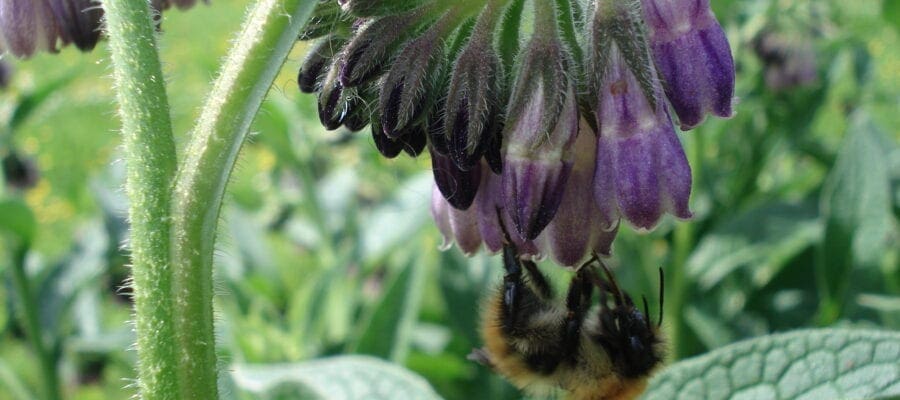The most extensive study of neonicotinoid pesticides to date has concluded that they do harm both honeybees and wild bees.
Exposure to the chemicals was found to leave honeybee hives less likely to survive over winter, while bumblebees and solitary bees produced fewer queens. The study, published in Science, spanned 2,000 hectares across the UK, Germany and Hungary and was set up to establish the ‘real-world’ impacts of the pesticides.
Bees were exposed to winter-sown oilseed rape that had been treated with two different types of neonicotinoids as well as untreated oilseed rape. Exposure to the treated crops reduced overwintering success of honeybee colonies – in Hungary, nearly a quarter of colonies did not survive. Also worrying was the lower reproductive success in queen numbers (bumblebees) and egg production (red mason bees) across all three countries.
Bee specialist Professor Dave Goulson of the University of Sussex says, ‘Continuing to claim that use of neonicotinoids in farming does not harm bees is no longer a tenable position.’
Find out more at https://www.ceh.ac.uk/news-and-media/news/neonicotinoid-pesticides-harm-honeybees-wild-bees-first-pan-european-field-study and go to https://hartley-botanic.co.uk/magazine/pesticide-roulette/ to read John Walker’s interview with Professor Goulson, which follows up his finding that many ‘bee-friendly’ plants sold in garden centres contain neonics and other toxic chemicals. For more on that story, go to http://www.kitchengarden.co.uk/-pPerfect-for-pollinators–p-6582OlB





